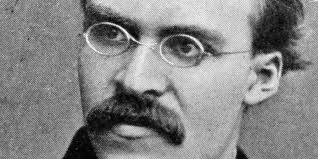 Dopo Beccaria, la liceità della tortura non era più stata affermata e si sarebbe potuto credere che, con forte anticipo rispetto alla pena di morte, fosse stata definitivamente bandita dalle legislazioni democratiche. Questo studio filosofico esamina il ritorno del dibattito sulle possibili eccezioni alla messa al bando delle sevizie [nell’immagine a lato, il trattamento riservato ai prigionieri di guerra a Guantanamo [Guantanamo forever]. Qui, un articolo di Repubblica sulla condanna dell’agente della CIA che ha rivelato la pratica del waterboarding negli interrogatori di polizia].
Dopo Beccaria, la liceità della tortura non era più stata affermata e si sarebbe potuto credere che, con forte anticipo rispetto alla pena di morte, fosse stata definitivamente bandita dalle legislazioni democratiche. Questo studio filosofico esamina il ritorno del dibattito sulle possibili eccezioni alla messa al bando delle sevizie [nell’immagine a lato, il trattamento riservato ai prigionieri di guerra a Guantanamo [Guantanamo forever]. Qui, un articolo di Repubblica sulla condanna dell’agente della CIA che ha rivelato la pratica del waterboarding negli interrogatori di polizia].
Pubblicato in “Philosophy & Public Affairs”, Volume 33, Issue 1, pages 1–33, January 2005.
Why is torture morally wrong? This question has been neglected or avoided by recent moral philosophy, in part because torture is by its nature especially difficult to discuss. Torture involves degrees of pain and fear that are often said to be utterly indescribable; indeed, these experiences are sometimes said to destroy in their victims the very hope of any sort of communication or shared experience whatsoever.1 Torture has proved surprisingly difficult to define.2 There is no clear agreement on the distinction between torture, coercion, and manipulation, or whether such techniques as sleep and sensory deprivation, isolation, or prolonged questioning should count as forms of torture.3 In addition, we may be fearful of deriving some sort of perverse titillation from the subject, or of being able to dispassionately contemplate the agonies of real victims of torture. Those who have not suffered torture may well feel it is not their place to offer any very substantive reflections on the practice, leaving the issue to those who unfortunately know what they are talking about. We might also worry that in just raising the question, we inadvertently give aid and comfort to torturers, if only by supplying materials for disingenuous self-justification.












Commenti recenti